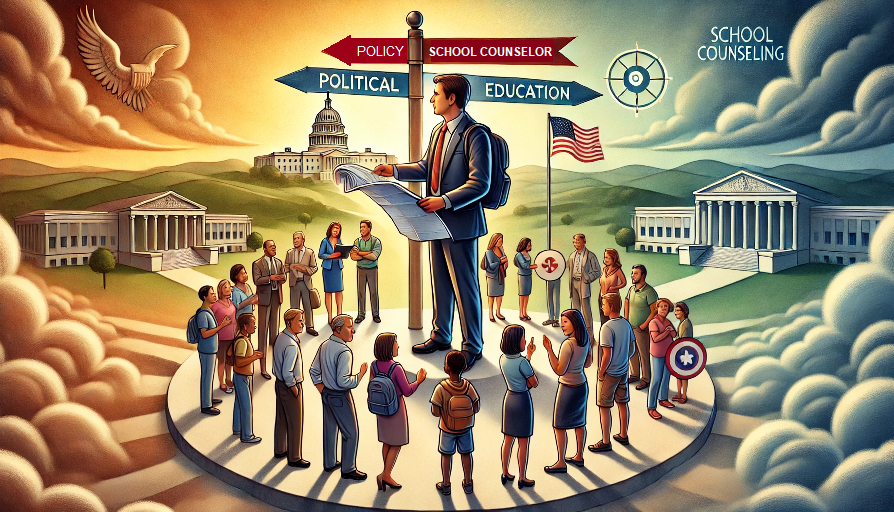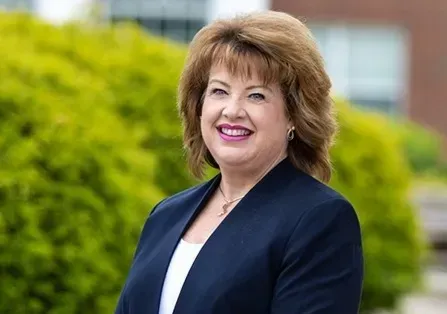Susan Rardon
Rose, Ph.D.
Leading in Demanding Times
A Guide for School Counselors Facing DEI Policy Changes

In recent months, actions taken by the U.S. Department of Education regarding Diversity, Equity, and Inclusion (DEI) have sparked intense discussions and raised concerns in many educational communities. For school counselors, these developments can feel particularly personal when language used in policy debates—such as equating DEI initiatives with indoctrination—casts a shadow over your professional practice. As dedicated professionals committed to the well-being of every student, it’s important to find constructive ways to address these challenges while staying true to your ethical standards and evidence-based practices.
In this blog, we explore strategies for navigating the impact of these policy changes, fostering open communication with stakeholders, and reaffirming the core mission of school counseling.
1. Understand the Policy Landscape
- Stay Informed: Begin by familiarizing yourself with the latest policy announcements, official documents, and credible analyses regarding the elimination or modification of DEI initiatives. Understanding the specifics of what is being proposed or implemented allows you to distinguish between political rhetoric and the practical implications for your work. ASCA is leading the initiative in this, so follow their lead. Contact your state School Counselor Association for specific direction.
- Recognize the Broader Context: Policy changes often emerge from complex debates about educational content and community values. While some critics use charged language—such as accusing DEI programs of “indoctrination”—it is important to remember that the purpose of these initiatives, when implemented in school counseling and education, is to support an inclusive environment where all students can thrive. It is equally important to recognize the role that media play in this. Nothing is ever as big as it may seem through the lens of the media.
2. Clarify Your Professional Role
- Reaffirm Your Commitment: School counseling is grounded in evidence-based practices and ethical guidelines designed to support the academic, social, and emotional development of students. Emphasize that your role is to empower students through critical thinking, self-awareness, and resilience—not to promote a political agenda.
- Document Best Practices: Ensure that you are keeping records of the professional standards, research, and documented outcomes that support your counseling program. When concerns arise, these materials can serve as a clear reminder that your work is focused on student well-being and adheres to established, ethical protocols. It's all in the DATA!
3. Communicate Openly with Stakeholders
- Engage Parents, Teachers, and Administrators: Transparent communication is key. When discussions about or around this specific Executive Order arise in your school or community, take it as an opportunity to provide factual information about what School Counseling programs are and how they align with broader educational goals and student achievement. Offer to share resources or host informational sessions that explain the value of school counseling programs in fostering student success.
- Address Misconceptions Directly: If you encounter claims that school counselors are “indoctrinating” students, consider organizing forums or workshops that focus on evidence-based approaches to supporting ALL student needs. Highlight the difference between promoting critical thinking and personal growth versus political persuasion. Reinforce that your counseling sessions are confidential spaces where students learn to navigate a range of ideas and develop their own informed perspectives.
4. Foster a Supportive School Environment
- Prioritize Student-Centered Practices: Even as policies evolve, your primary mission remains unchanged: supporting students. Continue to create safe, supportive spaces where students can build self-confidence, learn essential coping strategies, and thrive. Ensure that every student feels valued regardless of their background.
- Utilize Inclusive Language: Ensure that your communication and program materials reflect all students. By using language that emphasizes respect, empathy, and understanding, you help create an environment where all voices are acknowledged.
5. Engage in Professional Development and Self-Care
- Seek Ongoing Training: Participate in professional development opportunities that focus on adapting counseling programs in changing political and educational climates. Staying updated on the latest research and techniques will empower you to respond effectively to new challenges while maintaining high standards of practice.
- Build a Network of Support: Connect with other school counselors and professional organizations to share experiences, strategies, and resources. Peer support can be invaluable when navigating uncertain times, offering both practical advice and emotional reinforcement.
- Practice Self-Care: The stress of navigating politically charged changes can take a toll on your well-being. Make self-care a priority—whether through mindfulness practices, professional counseling, or simply taking time to recharge—so you can continue to support your students effectively.
6. Advocate Thoughtfully
- Engage in Policy Discussions: When appropriate, contribute to discussions about education policy by sharing your professional perspective. Your on-the-ground experience can be a valuable asset in shaping a narrative that focuses on student support rather than political rhetoric.
- Encourage Collaborative Solutions: Advocate for dialogue that involves educators, policymakers, parents, and community leaders. Collaborative efforts are more likely to produce balanced solutions that honor both the need for accountability and the core mission of supporting student development.
Final Thoughts
The evolving landscape around DEI initiatives and their portrayal in policy debates can be challenging for school counselors who are committed to creating supportive, inclusive environments. By staying informed, clarifying your professional role, communicating openly, and investing in your own well-being, you can navigate these challenges with confidence and integrity.
Remember, your work is not defined by political labels but by a steadfast commitment to the growth and development of every student. Through thoughtful advocacy, respectful dialogue, and a focus on evidence-based practices, you can continue to make a positive impact—even in the face of policy shifts and contentious public debates.
Together, we can uphold the true purpose of school counseling: empowering students to become resilient, informed, and compassionate individuals prepared to navigate the complexities of the world.
I am a school counselor turned counselor educator, professor, and author helping educators and parents to build social, emotional, and academic growth in ALL kids! The school counseling blog delivers both advocacy as well as strategies to help you deliver your best school counseling program.

I'm a mother, grandmother, professor, author, and wife (I'll always be his). Until October 20, 2020, I lived with my husband, Robert (Bob) Rose, in Louisville, Ky. On that awful day of October 20,2020, my life profoundly changed, when this amazing man went on to Heaven. After Bob moved to Heaven, I embraced my love of writing as an outlet for grief. Hence, the Grief Blog is my attempt to share what I learned as a Counselor in education with what I am learning through this experience of walking this earth without him. My mission is to help those in grief move forward to see joy beyond this most painful time.
Useful Links










